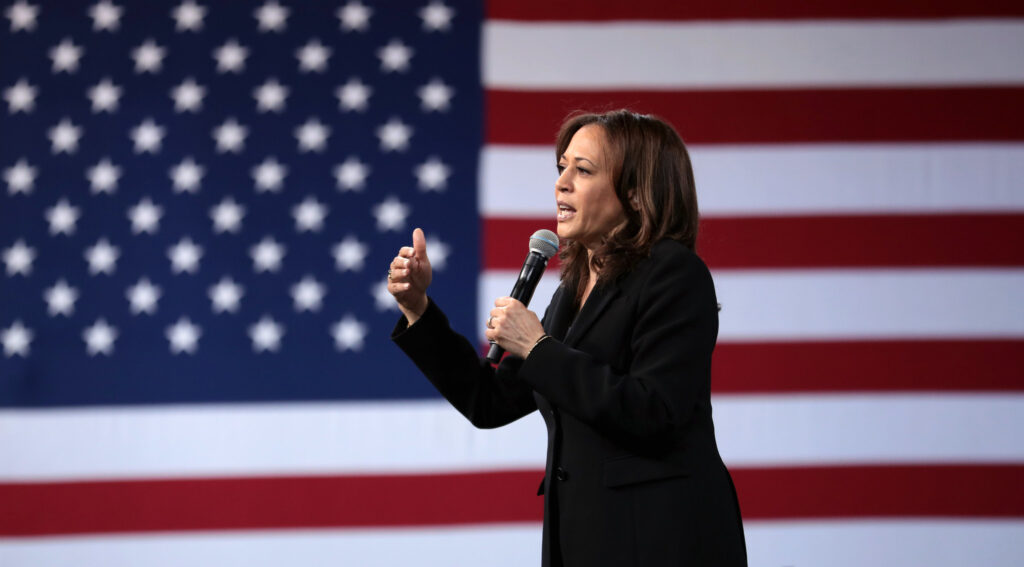|
Australia May End Its Failed Carbon Tax
On September 8, the Australian electorate replaced its labor party with a conservative coalition vowing to end the nation’s unpopular carbon tax, which has burdened the economy for more than a year. The Institute for Energy Research reports the tax has increased electricity prices by 15 percent, raised taxes on 2.2 million Australians, and even exacerbated the country’s budget problem by slowing economic growth. The carbon tax also has failed to accomplish its stated goal of reducing carbon emissions. Although the Australians may be moving toward abandoning their carbon tax, Americans could soon face their own $100 billion national version. The state of Massachusetts is also considering becoming the first state to implement a carbon tax. A poll by the Tarrance Group “found that 50 percent of voters are less likely to re-elect their member of Congress if they support a carbon tax, while only 33 percent of voters are more likely to vote for them again.” Last year, Heartland’s Taylor Smith warned of the dangers of potential carbon tax implementation in the United States. He pointed out that if the federal government wants to reduce carbon emissions, it should allow the private sector to develop the country’s abundant natural gas reserves. Doing so also would produce tremendous economic benefits for the economy, as opposed to the economic regression that would follow a carbon tax. Even if a carbon tax were to succeed in its goal of reducing carbon dioxide emissions, the tax would not be beneficial. Joseph Bast, president of The Heartland Institute, explains, “Carbon dioxide is not a negative externality, it is a measure of energy use, and energy – as Julian Simon and others have pointed out – is the ‘master resource,’ the single most important input into our economy, the source of prosperity, innovation, and opportunity.” Consumers and workers would bear the brunt of a carbon tax, as it would drive up the cost of energy and other necessary goods and push manufacturing jobs overseas. The focus should be on encouraging more energy development by opening more federal lands to development, opposing moratoria and other regulations on hydraulic fracturing, and eliminating costly renewable portfolio standards. This week’s edition of The Leaflet features research and commentary addressing the social cost of carbon dioxide, banning Internet access taxes, financial transaction taxes, food stamps, higher education, and Obamacare’s effect on the workforce. Respectfully, John Nothdurft
|
|
Research & Commentary: Social Cost of Carbon Dioxide In an attempt to quantify the presumed economic and ecological damages of carbon dioxide emissions so governments can ultimately require payment through taxes and regulations, a White House Interagency Working Group was assigned to issue a technical document for how to calculate a “Social Cost of Carbon” (SCC). According to the Working Group document, the purpose of an SCC estimate is to “allow agencies to incorporate the social benefits of reducing carbon dioxide (CO2) emissions in cost-benefit analyses of regulatory actions that impact cumulative global emissions.” In testimony before the U.S. Senate Environment and Public Works Committee, Dr. Robert Murphy of the Institute for Energy Research noted the SCC estimates could have “profound impacts on both industry and consumers.” Applications of the SCC could include fuel economy standards, EPA greenhouse gas regulations, household appliance efficiency standards, and various renewable energy subsidy programs, Murphy noted. SCC estimates are extremely malleable, Murphy testified, because they’re dependent on very subjective modeling assumptions. This ambiguity greatly separates the SCC from more objective scientific concepts such as the radius of the moon or the boiling point of water, which can easily be measured and thus relied on. The SCC’s heavy dependence on modeling assumptions was demonstrated when the Working Group completely disregarded a directive from the Office of Management and Budget (OMB) to assume a discount rate (how much one is willing to pay now to avert future damages) of 7 percent for cost-benefit analysis. Using the OMB-directed discount rate likely would have shown the SCC as approaching zero if not actually negative, which would mean carbon dioxide emissions confer a net benefit to society and thus imply use of coal-fired power plants should be encouraged. The ability to choose from a broad range of assumptions allows government agencies to find evidence for whatever policy they desire. Policymakers and regulators should be aware of the SCC’s unreliability as a scientific measure and not use it to justify regulations. |
|
Bill Would Forever Ban Internet Access Taxes This article from the Heartlander digital magainze examines a bill currently being considered in Congress, the Internet Tax Freedom Forever Act (S. 1431), which would permanently extend the ban on state and local taxation of Internet access service. The bill, introduced by Senators Ron Wyden (D-OR) and John Thune (R-SD), is designed to ensure consumers’ access to broadband is protected from onerous local taxes and fees. The national average tax on wireless service currently tops 17 percent, more than double the 7.3 percent average tax on other goods and services. In some states, wireless service taxes top 20 percent. Internet access has been protected from this tax onslaught for the past decade and a half by the Internet Tax Freedom Act of 1998, which placed a moratorium on state and local taxation of Internet access and on discriminatory taxes on emails and other electronic data. The moratorium is set to expire in 2014, but some members of Congress are proposing to make it permanent.
Financial Transactions Taxes Act as Drag on Economic Activity This article from the Heartlander discusses the growing push by financial regulators to enact a new financial transactions tax, similar to efforts currently being implemented in other countries. For proponents of these financial transaction taxes, commonly known as “Robin Hood” taxes, the goal is twofold: raise revenue for the national governments and slow down short-term speculative trading, which they believe causes unnecessary market volatility. While the financial transactions tax has yet to gain significant momentum in the United States, several countries in Europe already have implemented such a tax or are strongly considering one. In August 2012, France imposed a new 0.2 percent transactions tax on certain stock purchases. Early in 2013, 11 member nations of the European Union created a new tax of 0.10 percent – or 10 basis points – to be imposed on stock and bond trades and one basis point on derivatives. Proponents of transactions taxes argue markets can absorb them with little disruption, with the burden being borne by speculators. Opponents respond that these new taxes would harm financial markets by decreasing trading volume. This, in turn, would result in less revenue than governments anticipate. Opponents also note transactions taxes would lower the values of pensions, retirement savings accounts, and financial tools like annuities, charitable trusts and money market funds.
Food Stamps and Fungibility of Money Lead to Unintended Outcomes The Supplemental Nutrition Assistance Program (SNAP), popularly known as “food stamps,” has grown at an increasing rate in recent years. In this article from the Heartlander, Kathryn Shelton and Richard McKenzie examine some of the unintended consequences of this rapid expansion. Shelton and McKenzie point out how the expansion of food stamp purchases has led to an increase in the consumption of “unapproved” goods using other welfare dollars. They write, “Moreover, low-income people know they can use their food-stamp cards to buy permissible foods, and then use their own earned dollars or welfare payments that no longer need to be used on foods to buy the prohibited items. In short, food stamps enable many low-income people to buy more foods, but they also enable them to buy more alcohol, cigarettes, chocolates, or whatever else they desire. Food stamps can encourage, albeit marginally, alcoholism (and even a greater incidence of drunk driving among some) and lung cancers among recipients who use food stamps’ fungibility to increase their purchases of alcohol and cigarettes.” Letter: Not Every Student Is Cut out for College Research Fellow Joy Pullmann responds to a Columbus Dispatch editorial that blames poor ACT scores on Ohio high schools, saying doing so assumes everyone should go to college, otherwise there would be no reason to believe ACT scores are an accurate measure of quality high schools. Pullmann writes, “It’s not fair to force every child, many of whom are not bookish, to attend college at considerable personal cost rather than offering them many other routes to a good career.” Study: Obamacare Could Shrink Work force by 900,000 According to a new study, if you’re single, earning less than $22,000 annually, and getting health insurance through your employer, President Barack Obama’s law may make you reconsider showing up for work in 2014. If low-income workers are able to buy reduced-price health insurance through the new federal exchanges, there may be less of an incentive for those workers to keep or find a job, according to three researchers at the National Bureau of Economic Research, a national think tank. “Our results appear to indicate that the soon-to-be-enacted health-care reform may cause substantial declines in aggregate employment,” conclude researchers Craig Garthwaite, Tal Gross, and Matthew Notowidigdo. In the paper, the three academics examine the so-called “employment lock” phenomenon. That’s what happens when employees continue working at their current job primarily so they can earn and keep health benefits. That “lock” will be loosened by Obama’s law. |


